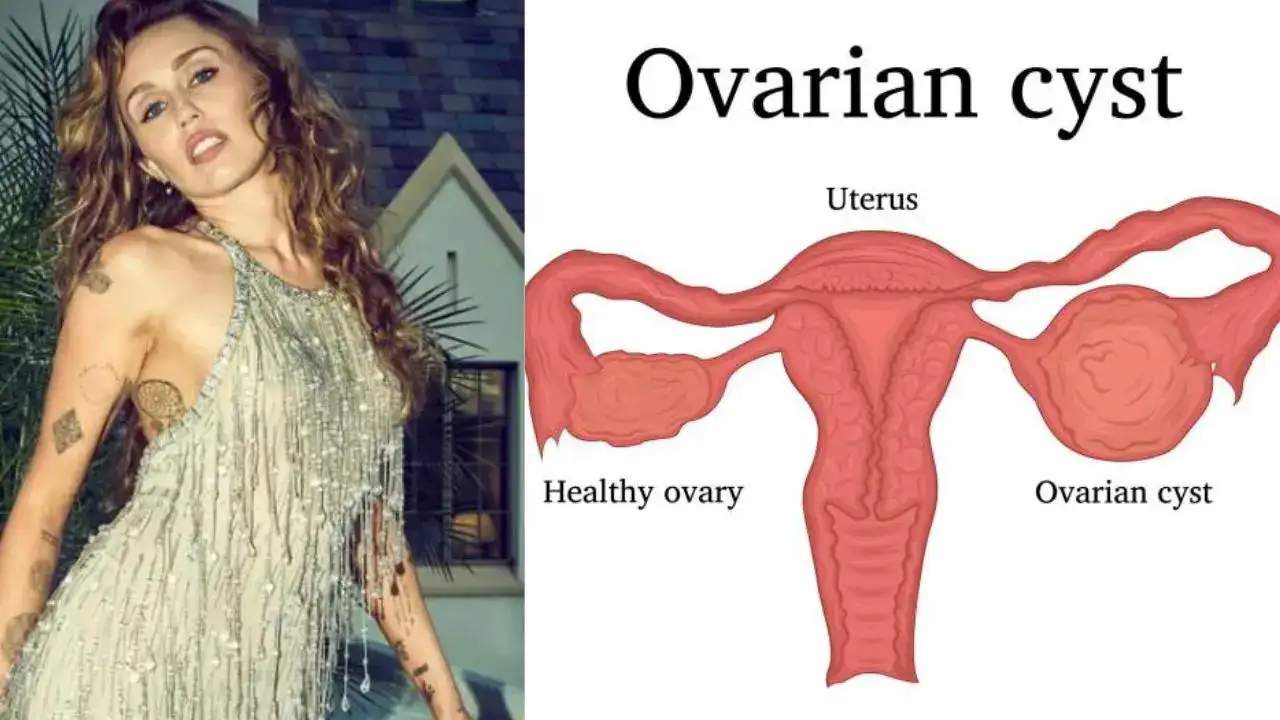
Ovarian cysts are common and often resolve on their own, but larger cysts can be extremely painful and life-threatening, if a rupture occurs (Pic: Instagam/iStock)
Pop star Miley Cyrus recently revealed she experienced a ruptured ovarian cyst, a painful ordeal that can result in a medical emergency. The 32-year-old singer-songwriter said the ovarian cyst rupture occurred while she was hosting a party.
“I had a pretty traumatic experience on a show that I was doing with [Lorne Michaels] when I was doing my New Year’s show,” Cyrus said during an interview. “I had a medical emergency. I had an ovarian cyst rupture. We didn’t know exactly what was going on, so we did it. It was pretty traumatic because it was extremely excruciating, and I did the show anyway,” she continued. “But it was hard on me.”
According to doctors, ovarian cysts are common and often resolve on their own, but larger cysts can be extremely painful and, in some cases, life-threatening if a rupture occurs.
What are ovarian cysts?
Ovarian cysts are fluid-filled sacs that can develop on or inside an ovary. Doctors say that most are harmless and go away on their own, especially functional cysts that form during the menstrual cycle. However, some cysts can cause symptoms, especially if they grow large or rupture, and may require medical attention.
Signs and symptoms of ovarian cysts
Experts say ovarian cysts do not always cause symptoms. You likely would not know you have one unless your doctor finds one during a pelvic exam or pelvic ultrasound. Also, less than 1 per cent of ovarian cysts are cancerous, and doctors can closely monitor any concerning cysts to reduce your risk of experiencing complications.
A few signs and symptoms of ovarian cysts include:
- Pelvic pain or a dull ache in your back
- A feeling of fullness and bloating in your lower belly
- Pain during sex
- Painful or irregular periods
- Trouble pooping or needing to pee frequently
If a cyst ruptures, symptoms may include:
-
Sudden and sharp pelvic pain
- Abdominal distension
- Nausea and vomiting
-
Dizziness or fainting
- Low blood pressure or rapid heartbeat
Doctors say symptoms that linger could indicate a condition known as polycystic ovary syndrome, which causes irregular menstrual cycles and an increase in androgens that lead to cystic acne, difficulty with conception, and weight gain.
How would you know if an ovarian cyst is dangerous?
Doctors advise seeking emergency care if you experience:
- Sudden or severe pelvic and abdominal pain
- Pain with fever and vomiting
- Signs of internal bleeding like fainting, weakness, low blood pressure
- Rapid breathing or heart rate
Dangerous cysts are typically large, complex, or rapidly growing, or occur in postmenopausal women. Doctors usually assess the risk through ultrasound findings, blood tests like CA-125, and symptom evaluation.
